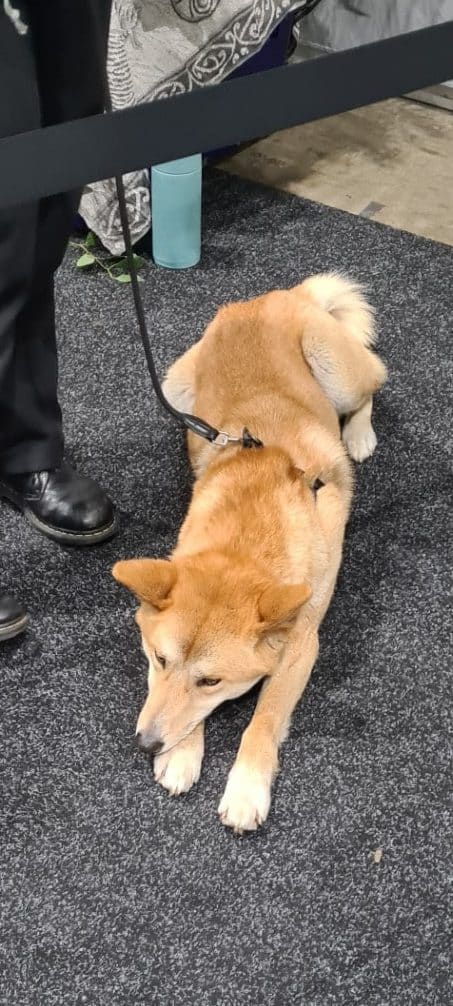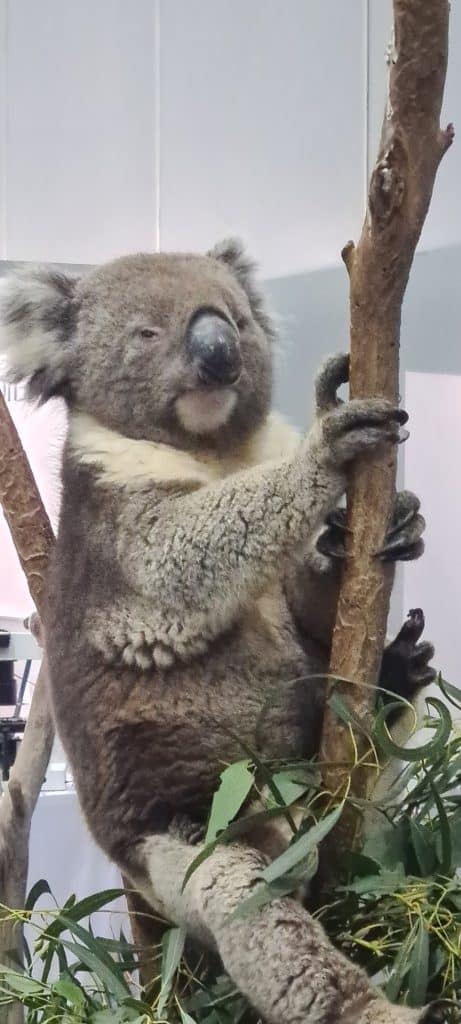Meeting report: Biomolecular Horizons 2024
Posted by Greg Redpath, on 6 January 2025


In September 2024 I attended the Biomolecular Horizons conference in Melbourne, Australia. This was a large conference with 9 concurrent sessions over 4 days. There was a lot of great biology presented from around the world, but in my meeting report I wanted to highlight something unique about the conference: the Indigenous Perspectives in Biomolecular Science Day. On this day, Indigenous researchers from Australia and Aotearoa/New Zealand spoke about their research, their experience as Indigenous scientists in a Western knowledge and research system and gave advice on how Indigenous perspectives and knowledge can be better incorporated into a Westernised research paradigm to minimise harm and maximise benefit for Indigenous people. I want to highlight that this post is based on the personal lessons I learned from the talks on this day. The learnings and views expressed here are my own that I am sharing in the hope that they prove informative to fellow researchers in highlighting the importance of considering the impact of our research on Indigenous peoples no matter where in the world we work. I will follow this report up with interviews of Māori and Aboriginal and Torres Strait Islander researchers.
To start with, here are pictures of a koala and dingo that were present at the welcome mixer for the conference. This is not typical for Australian conferences! I had never seen a dingo before, it was an incredibly calm and beautiful animal.
The importance of considering Indigenous knowledge systems.
A common theme that came up throughout the Indigenous Perspectives in Biomolecular Science Day was that there is a lot for us as Western researchers to learn from Indigenous knowledge systems. A very interesting example was given by Professor Michael-Shawn Fletcher (Wiradjuri, University of Melbourne) on archaeological evidence of bushfire management by Aboriginal and Torres Straight Islander people. It is clear based on traditional knowledge and evidence from the environment that bushfires were managed effectively prior to the colonisation of Australia. Professor Fletcher made the points that a failure to understand and appreciate the interconnectedness of people and Country was a barrier to improving social and environmental health. Therefore, by appreciating and applying Indigenous knowledge, we can lead to better health outcomes.
A further example that I have come across in my subsequent reading is in the therapeutic use of psychedelics (which I will circle back to later). Essentially, in Western research we are ‘discovering’ psychedelics as potentially effective treatments of affective disorders now, whereas in reality this knowledge has existed in Indigenous communities for thousands of years. To me, examples like this make it clear that our Western approach to research and acquiring information isn’t the only way of generating knowledge and shouldn’t supersede Indigenous knowledge systems. Answers to questions we are asking may already be present in Indigenous knowledge systems, and by seeking to answer questions only from a Western research perspective we are not only potentially wasting time trying to re-invent the wheel, but in cases such as bushfire management, coming up with ineffective methods compared to those already established by Indigenous people. Clearly we should be working together with Indigenous knowledge systems to better achieve meaningful and effective research outcomes.
We should remember that the scientific method based on observing and recording phenomena we use to generate knowledge in Western research is only 300-400 years old, whereas many Indigenous knowledge systems that also observe and record phenomena are many thousands of years old. There are many, equal, ways of generating knowledge.
Research undertaken without consideration and consultation of Indigenous people has caused harm.
Another interesting concept that was raised throughout the day was the notion that our perception of Western research being ‘objective’ is false, and how not acknowledging and reducing our subjectivity by including Indigenous communities can lead to harm for these communities.
An example given of ‘objective’ research leading to harm for Māori in Aotearoa was that of the “warrior gene”. The “warrior gene” research was a genetic association project undertaken to discover genetic variants linked with alcohol and tobacco response in Māori communities. A spurious link was found between Māori and a variant of the monoamine oxidase gene variant popularised as the “warrior gene”. This link was disseminated through peer review publication and picked up by politicians, the media, and the general public, and used to explain the disproportionately high incarceration rates for Māori in Aotearoa. This caused an outcry and considerable harm to Māori, detailed excellently by G. Raumati Hook in the article “Warrior genes and the disease of being Māori” (https://www.journal.mai.ac.nz/system/files/maireview/222-1507-1-PB.pdf).
This case highlights that while Western research may utilise seemingly objective methodologies (for example in this case, DNA sequencing), the outcomes of this research can be anything but objective. In the “warrior gene” example, why were the researchers asking the questions they were asking? Why did they focus on monoamine oxidase variants? And why did they choose to disseminate the results in the way they did, framed in the way they did? This is because research carried out with the limiting Western/colonial lens will be inevitably subjective and biased against Indigenous peoples.
The premise of research being objective is false. Whilst we may apply rigorously ‘objective’ methodology and analyses, there are always societal, cultural and historical aspects governing the reasons we pursue certain research questions which introduce subjectivity. Ask yourself why you are interested in the research topics you are interested in, why you pose the hypotheses and scientific questions you do. These are all based on our broader cultural context, our personal history, upbringing, experience, funding and government systems, that is, our subjective experience. Asking research questions relating to Indigenous communities from a subjective Western standpoint can therefore cause great harm to Indigenous communities without the proper consultations. Conversely, by consulting and co-designing research with Indigenous communities, we include more views when developing research questions, undertaking the research, and disseminating the results, ensuring we can minimise this potential for harm, increase the true objectivity, and ensure benefit for Indigenous communities from our research.
Indigenous knowledge must be protected from exploitation.
An aspect that was raised by Professor Misty Jenkins (Walter and Eliza Hall Institute of Medical Research, Gunditjmara) in her Plenary talk on the opening day of the conference was how Indigenous knowledge and intellectual property has been exploited by Western researchers. She highlighted how in an Australian context, theft of intellectual property of Aboriginal and Torres Straight Islander people had occurred through use of DNA sequences by private companies without permission. For Aboriginal and Torres Strait Islanders (and also for many Indigenous people around the world), an individual’s DNA can be viewed as belonging to the group- the nation, tribe, family, or community. Providing a standard Western consent for sequencing of an individual’s DNA does not consider this wider ownership of genetic property, and without proper consent, misuse of sequences- that is Indigenous intellectual property, has occurred. A good discussion of how Aboriginal and Torres Strait Islanders view ownership of genetic property and how sequencing project can lead to exploitation of this is provided by Dodson and Williamson in the Journal of Medical Ethics (10.1136/jme.25.2.204).
As a basic scientist, it is easy to think that my work wouldn’t have any impact, positive or negative, on Indigenous people. However, the points Professor Jenkins raised, and conversations I had with other researchers throughout the conference, made me consider if this was true. One of my research projects is seeking to understand the cellular effects of psychedelics including psilocybin. Magic mushrooms (psilocybin containing mushrooms) represent a striking example of the exploitation of Indigenous knowledge and theft of Indigenous intellectual property. In an excellent Viewpoint article in ACS Pharmacology & Translational Science (10.1021/acsptsci.0c00171), Konstantin Gerber and colleagues highlight that the original knowledge of the therapeutic properties of psilocybin was that of the Mazatec indigenous communities. The knowledge of the beneficial properties of psilocybin was shared with a promise of secrecy, which was broken and published in a Life Magazine article in 1957. Following (up to 2021), there have been 24 patents filed seeking to commercialise the use of psilocybin for therapeutic purposes, of which none reached any agreement with the Mazatec (or other) Indigenous communities. To me, this highlights that even in undertaking a basic science research project, it is important to consider how my work could impact- and potentially exploit- Indigenous knowledge. Compounds like psilocybin come from products of the land, land that Indigenous people were the stewards of for hundreds to thousands of years. If my work ventures into investigating endemic mushrooms from Australia or Aotearoa, it is paramount that this is done in partnership with the local Aboriginal or Torres Strait Islander nations or iwi to ensure my research doesn’t contribute to the exploitation of, and can perhaps even provide a pathway for benefit to, Indigenous people.
For further reading, a recent Nature Chemistry article by Khalyd Clay and Ryan Shenvi provides an excellent overview of how to consider is research on a natural product could lead to Indigenous exploitation and provides examples of models of Indigenous reciprocity for benefit sharing, using the example of salvinorin A and the Mazatec people (10.1038/s41557-024-01659-x).
Advice for non-Indigenous researchers.
To finish my meeting report, I will recount advice provided for non-Indigenous researchers by Associate Professor Phillip Wilcox (Ngāti Rakaipaaka, Ngāti Kahungunu te Wairoa, Rongomaiwahine, University of Otago):
- Our skills as Western researchers are needed- the research capacity and opportunity for Indigenous people is limited.
- Incorporating Indigenous knowledge, people and ethics systems can and will improve research.
- Start collaborations with Indigenous communities and researchers on their terms.
- Recognise that Indigenous researchers and communities have their own priorities- and strong responsibilities to their people.
- Don’t cherry pick the parts you want.
There was a final piece of advice I found personally important that came up in the panel discussion concluding the Indigenous Perspectives Day chaired by Jordon Lima (Ngāti Porou, Te-Aitanga-a-Hauiti, University of Otago) and Doctor Jessica Buck (Kamilaroi, Telethon Kids Institute):
“Don’t be frozen. Don’t let fear of not knowing where to begin stop you.”
It is incredibly important to ensure our research is conducted in a way that benefits Indigenous people, no matter where in the world we are. It can be daunting to start conversations with Indigenous groups about your work, but we can’t let this fear stop us beginning these conversations. By starting these conversations, we can ensure our work is undertaken with the proper consent of the Indigenous people wherever we are, that our work will lead to benefit, not harm, and that we can respectfully incorporation Indigenous knowledge into our research as equal partners, to benefit all no matter where we reside.
Acknowledgements
I would like to acknowledge all of the Māori and Aboriginal and Torres Straight Islander researchers, the First peoples of Aotearoa and Australia, who presented at Biomolecular Horizons. Each presentation from these researchers at Biomolecular Horizons provided the inspiration and information I have presented in this post. I would like to especially acknowledge the following researchers whose presentations or conversations contributed to my learnings, but who are not explicitly acknowledged in the text:
- Dawn Lewis (Woolwonga, PhD candidate in Genomics at the University of Adelaide).
- Connor Watene-O’Sullivan (Te Rarawa, Ngāti Maru, Ngāpuhi, Te Arawa, The Moko Foundation).
- Doctor Kimiora Henare (Ngāti Haua, Te Aupōuri, Te Rarawa, University of Auckland).
- Professor Liz McKinley (Ngāti Kahungunu ki Wairarapa, Ngāi Tahu, University of Melbourne).


 (No Ratings Yet)
(No Ratings Yet)
